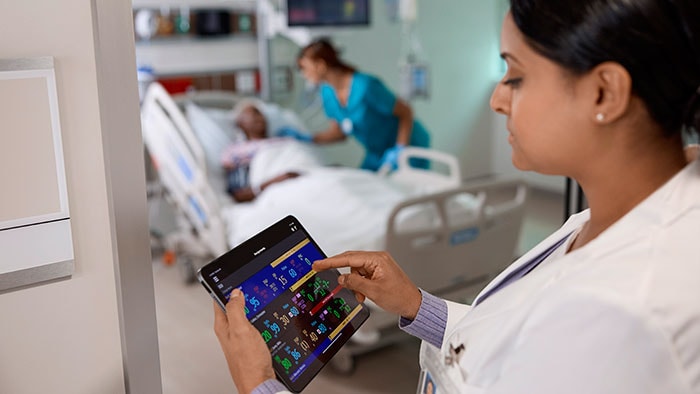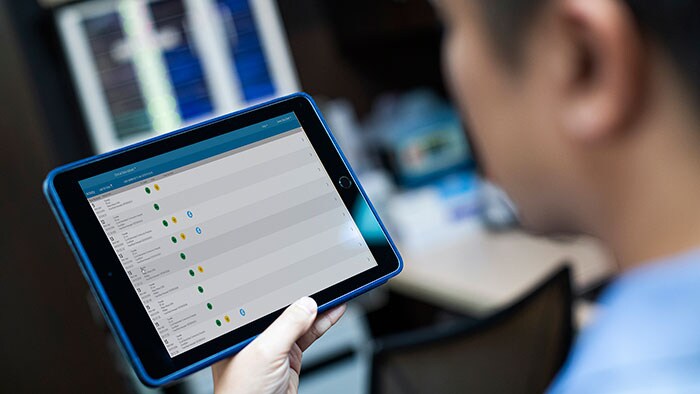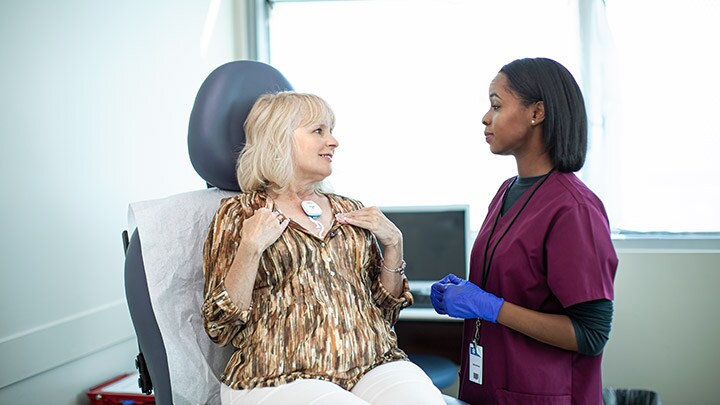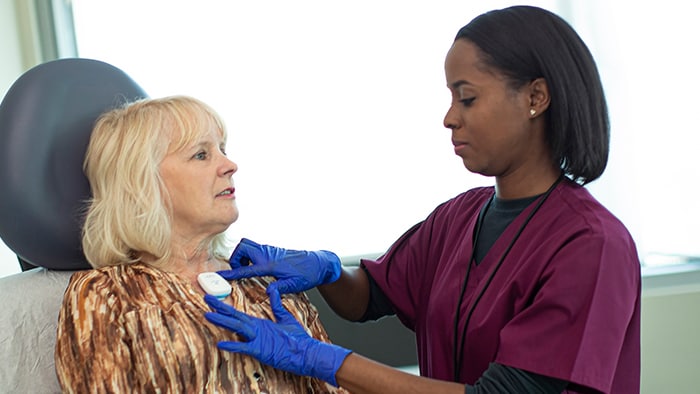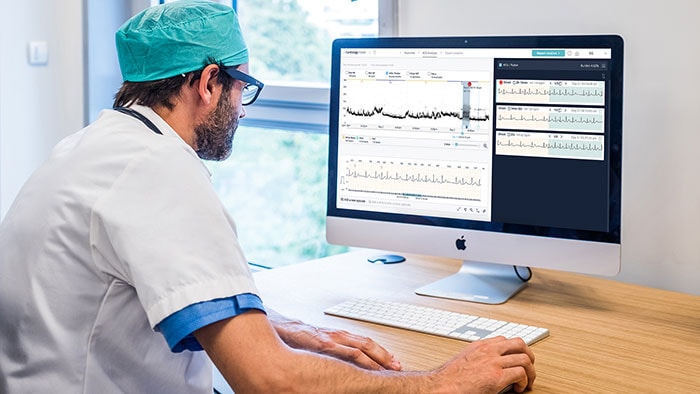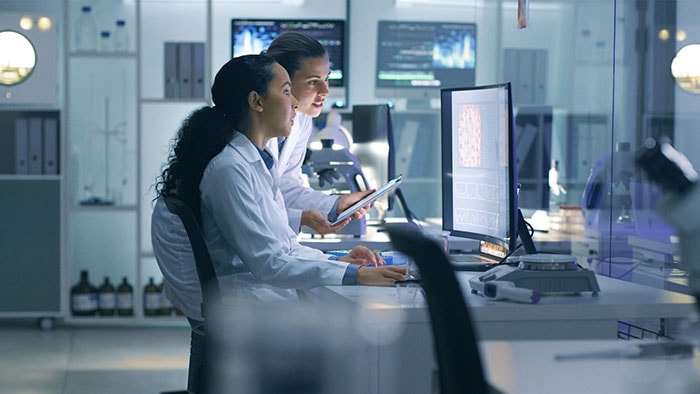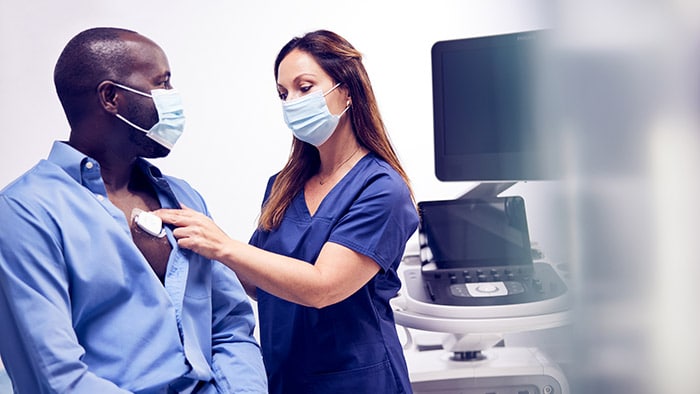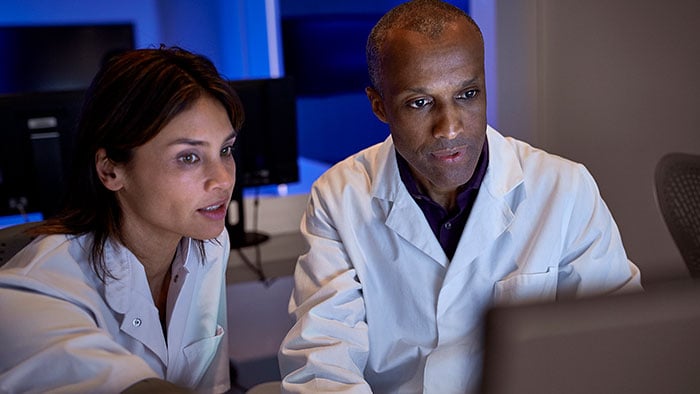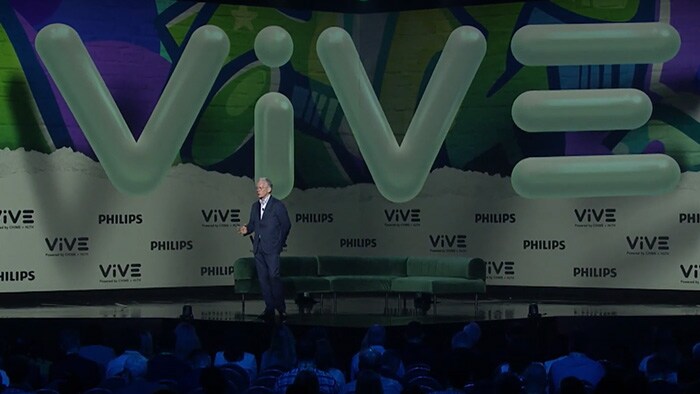According to the American College of Healthcare Executives, workforce challenges ranked No. 1 on the list of hospital CEOs’ top concerns in 2022, centered predominantly on clinical staff shortages and increasing levels of burnout among existing staff [1]. The burden on clinical staff is exacerbated by the increasing complexity of aligning patient care with today’s evidence-based clinical protocols, which demand the rigorous collation and analysis of large amounts of patient data. It is especially challenging in acute care, where critical decisions need to be made quickly.
Healthcare leaders are attempting to alleviate pressure on clinicians by rethinking how care teams work and how care models are structured. Virtual care, remote patient monitoring, telehealth, and mobile care are all examples of how hospitals and health systems are looking to maximize the efficiency and effectiveness of the staff they already have. These new connected care models also make it easier for experienced clinicians to mentor and guide up-and-coming colleagues, helping to manage the complexity of modern care and pass on knowledge and expertise.
Utilizing clinical surveillance to empower new care models
Philips has expanded its informatics portfolio to support these new care models with vendor-neutral, configurable surveillance capabilities. This technology helps healthcare providers better understand patient status in real-time, adjust care plans, and recognize deterioration risk to help prevent patient decline. By analyzing live streaming data and applying smart rules, the system generates insights tailored to specific patients and populations. These insights are securely delivered to caregivers at any clinical touchpoint, empowering them to make better-informed clinical decisions and initiate appropriate interventions quickly. Philips clinical surveillance solutions include patient data visualization, alerting, event management, and patient data analytics. Clinical surveillance may help improve staff efficiency and satisfaction, patient safety, and outcomes across acute care settings by extending the capacity of the entire care team.
“Over the past few years, our customers have experienced major changes in healthcare globally, with the increasing shortage of qualified healthcare professionals being one of the biggest pain points. For care providers, leveraging data technologies to alleviate the pressure on clinicians is a top priority,” said Elad Benjamin, General Manager, Clinical Integration & Insights at Philips. “By liberating data from existing medical devices and replacing complexity with tailored, protocol-based insights, we can help customers improve the clinical workflow of their frontline care teams, enhance the patient and staff experience, and could help to improve the quality of care.”
Smart rules support clinical practice guidelines
Philips’ surveillance solutions today include Advanced Event Surveillance for Philips Patient Monitors and Smart Alerts™ for its eICU program, both of which help identify evolving and emergent patient conditions and alert caregivers. The latest addition to the portfolio is Philips Capsule Smart Rules, which compare real-time vital signs measurements and other patient data findings against user-defined conditions, informed by published best-practice guidelines, that can be tailored to an individual hospital’s protocols for specific patients, clinical diagnoses, and treatment care protocols.
Clinicians care for patients in accordance with published clinical practice guidelines associated with specific patient conditions to assist in guiding and evaluating these conditions per the course of care.
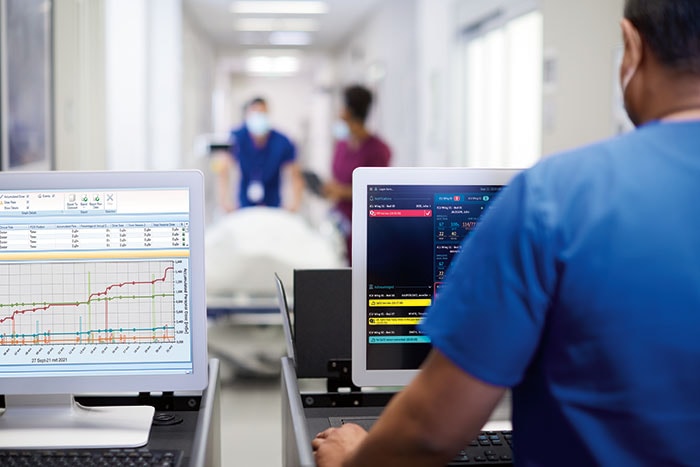
Philips Capsule Smart Rules assist in guidance, evaluation, and clinical decision-making throughout the course of care. They can be used to curate alerts that leverage and amplify a provider’s clinical experience and best practices by identifying the multi-variable guideline recommendations needed to notify caregivers when a patient’s condition changes in a meaningful way. Communicated to care team members’ mobile devices or remote workstations, these notifications can be immediately available to on-the-go caregivers or oversight teams in eICU, virtual care, or other settings.
Philips Capsule Surveillance supports a wide range of clinical guidelines, including guidelines published by the National Association for the Medical Direction of Respiratory Care (NAMDRC), American Thoracic Society (ATS), British Thoracic Society (BTS), American Society of Anesthesiologists (ASA), British Journal of Anaesthesia (BJA), and the American Association of Respiratory Care (AARC).
Committed to partnering with hospitals and health systems for success
The benefits of Philips clinical surveillance are best realized when clear clinical workflow and patient safety objectives are defined and measured at the start of a project. When coupled with full-disclosure data storage and retrospective analytics tools, such as Philips Clinical Insights Manager, Philips’ informatics services can measure progress towards a hospital’s patient safety objectives and test hypotheses to further optimize a hospital system.
Philips at HIMSS23
Throughout the week, Philips will host forum sessions in its booth, featuring presentations from Philips executives, customers and industry leaders, including on clinical surveillance. For the full program please visit here. Join Philips in person at HIMSS23 at booth #901 or visit Philips’ virtual informatics experience and follow @PhilipsLiveFrom for #HIMSS23 updates throughout the event.
Share on social media
Topics
Contact

Anna Hogrebe
Philips Global Press Office Tel: +1 416 270 67 57
You are about to visit a Philips global content page
Continue
